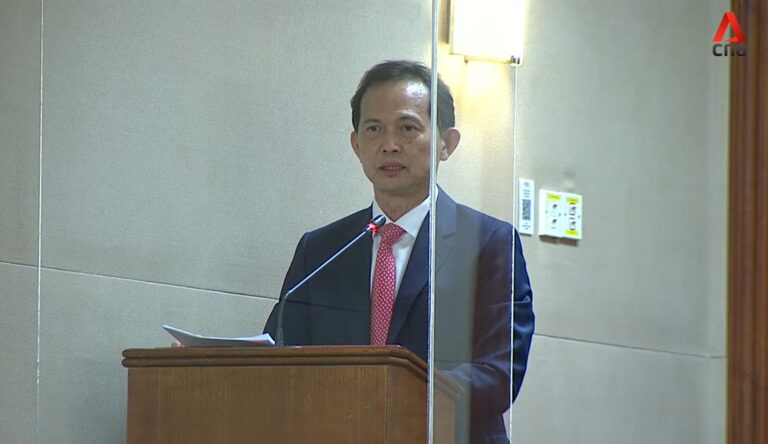Speech on Motion to Increase Borrowing Limits on 5 Jan 2020
1. Mr Speaker, I support the motion. Beyond the current borrowing limits, I also urge the Government to expand its financial management tools while keeping tight fiscal discipline to achieve better financial efficiency.
2. I noted that the borrowing limit increases have been consistently sought at regular intervals of three to five years over the past two decades.
3. The last time, the Government Securities’ limit was raised by $200B to $690B in Nov 2016; and the Treasury Bills’ limit was raised by $30B to $60B in Aug 2007. So the current combined limit for Government Securities and Treasury Bills (collectively Government Securities) is $750B. As of Mar 2020, the total combined issuance has reached $670B which is very close to the $750B limit, hence the need to increase the limit.
4. The current round of $270B and $45B limit increases for Government Securities and Treasury Bills respectively will bring the combined borrowing limit to $1.065T. However, these borrowings are actually not spent but managed and re-invested by the Government of Singapore Investment Corporation (GIC) and the Monetary Authority of Singapore (MAS).
5. The Government does not need the funds because it has been running budget surpluses since 1968 except for a few years. The surpluses are attributed to profitable land sales, steady economic growth, high domestic savings through the CPF scheme and seignorage from the Singapore dollar. As a result, we have accumulated $1.35T of financial assets as of Mar 2020; and with our financial assets way in excess of our liabilities, our country enjoys the coveted Triple A Sovereign Credit Rating.
6. The issuance of Government Securities is actually for the development of the local bond and money markets, and for providing a safe investment instrument for the CPF’s funds. As of Mar 2020, $136B of Government Securities is held by the public, consisting of mainly Singaporeans and local financial institutions and $433B is held by the CPF Board.
7. I noted that in Budget 2019, the Government has announced that it would study the option of using Government debt as part of the financing mix for long-term infrastructure projects that the Government would be taking on directly.
8. In line with that, I urge the Government to institutionalise a new borrowing limit which may be called the Development and Contingency Limit (DC Limit) to have more flexibility in fiscal management and to take advantage of the historically low interest rates. The DC Limit should be separate from the current borrowing limits.
9. Using debt prudently yields many advantages. Firstly, debt in itself is good for instilling financial discipline. It is a well-researched fact that cash-rich companies perform badly in terms of financial efficiency and the same arguably applies to the management of a country’s finances. Injecting debt into our public projects will improve financial efficiency and more importantly, transparency and accountability.
10. Secondly, when there is a need to make huge unforeseen spending like the drawdown to fight the Covid-19, it is better to allow for “temporary bridge financing” through the issuance of Government Securities so as not to disrupt the investment process of GIC.
11. For example, to draw down $52B in a short period of time may mean that GIC needs to liquidate some of its investments at unfavourable prices. On the other hand, not tapping on GIC may allow it to realize an investment return higher than our borrowing cost, which gives us additional financial benefits.
12. Needless to say, before we deploy more debt, we should ensure that all the cash in the public sector are properly managed in the first place. I noted that the Government has already put in place the Centralized Liquidity Management scheme in Nov 2009 to centrally manage the cash of all Statutory Boards and Ministries and the weighted average yield from the scheme for the year ended 31 Mar 2020 was 1.93% per annum.
13. While this is commendable, I think the Government should go one step further and soak up the “excess cash” of the stat boards and deploy the cash to longer term investments to yield a higher return.
14. Excess cash is defined as cash over and above what is required to run the operations of the stat boards. As of Mar 2020, our estimate of the excess cash held by the stat boards totaled about $50B. This is not currently included in our national reserves.
15. There is also room for the budgeting process to be tightened up. The Government currently employs a block-budgeting process where the whole budget is allocated to the ministries in blocks with the quantum increasing every year in line with GDP growth. Each ministry then uses its discretion to reallocate the “block” to its individual projects and uses.
16. The zero-based budgeting process should be adopted instead whereby each project is re-evaluated every year by the Ministry of Finance. Projects which have outlived their usefulness should be closed or scaled down promptly. Ongoing projects after reaching maturity should reduce their spending by 2% every year to reinforce the importance of achieving efficiency gains. These practices are common in the private sector and can also be adopted in the public sector.
17. Finally, we should show the global capital markets that we have on hand many potential sources of tax revenues that can be tapped on to further boost our financial standing. We should not give the impression that the GST is the only source.
18. In the past, the Government has taken many conscious decisions to do away with many taxes especially those related to the progressive tax regime. For example, when GST was introduced in 1994, the Government started to reduce personal income tax and corporate income tax from 30% to 20% by 2007.
19. The Government abolished estate duty in 2008 and at the same time, took out tax on interest income in addition to the absence of capital gains tax and other forms of wealth taxes.
20. There are also no additional taxes on foreigners although they do not need to contribute to CPF or pay premiums to the MediShield and CareShield schemes.
21. In conclusion, I urge the Government to make use of the post-Covid year of 2021 as a starting point to review our fiscal policies, strategies and processes, to achieve greater financial efficiency for building a stronger financial foundation, both on the macro and micro level.
22. If the Government believes that this is a new normal, then old policies or the extension of them will no longer be the answer to the future.
23. I have thus made several recommendations to make use of debt prudently, tighten up budget allocation to increase financial discipline and reintroduce multiple tax collection avenues to boost our financial standing which I hope the Government will reconsider in totality.
24. Thank you.

